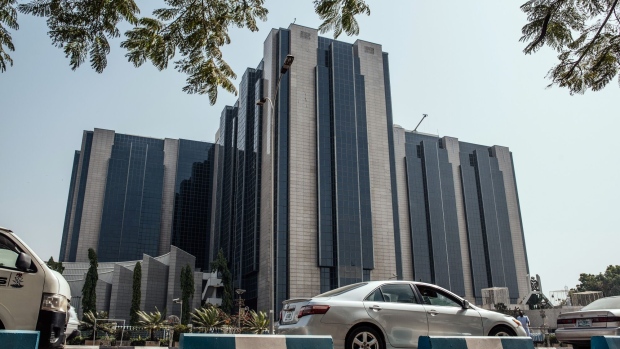Apr 17, 2024
Nigeria Curbs Banks’ Ability to Grant Loan to Reduce Market Liquidity
, Bloomberg News

(Bloomberg) -- Nigeria’s central bank curbed the ability of banks to grant loans as it seeks to reduce market liquidity and help reduce an inflation rate that rose to a 28-year high in March.
The Abuja-based Central Bank of Nigeria cut the bank’s loan-to-deposit ratio by 15 percentage points to 50% “to align with the current monetary tightening,” it said in a circular to lenders on Wednesday. The new limit is in line with the banks’ required cash reserve ratio, it added.
The regulator in February increased the minimum cash reserve requirement for banks to 45% from 32.5% — a measure that was also aimed at reducing naira liquidity, stabilizing the currency and reining in pricing pressures. It raised the benchmark interest rate by 600 basis points to 24.75% between February and March to try and achieve the same objectives.
After losing 43% of its value against the dollar in the first two-and-a-half months of this year, the naira has strengthened about 40% since mid-March — the most in the world among global currencies tracked by Bloomberg.
“While banks are encouraged to maintain strong risk management practices regarding their lending operations, the central bank shall continue to monitor compliance, review market developments and make alterations in the loan-to-deposit ratio,” the central bank said.
©2024 Bloomberg L.P.






